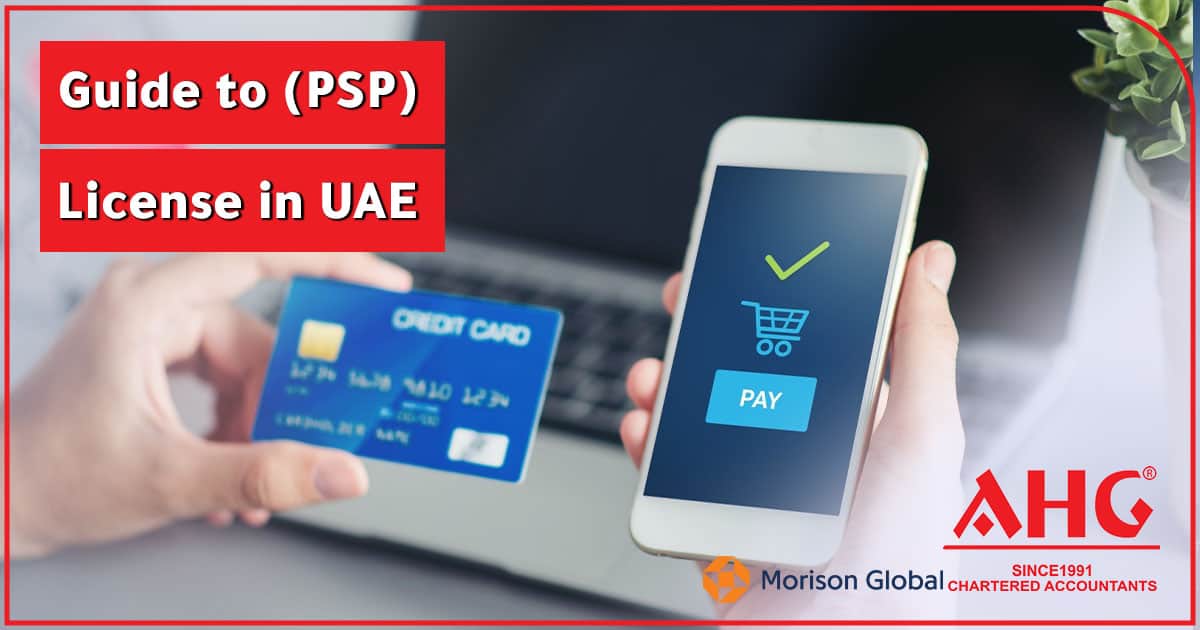PSP
What is a Payment Service Provider (PSP)
In simple terms, a Payment Service Provider (PSP) is a third-party service provider between businesses and their customers, enabling online payments through methods like card payments, bank transfers, and more. PSPs make it easy for merchants to receive payments and for customers to pay securely and conveniently.
PSP is considered very important nowadays where everything is online; shopping, booking services, and yes, payments too. People love the convenience of online payments because they’re faster, safer, and hassle-free. For businesses, they streamline payment processes and reduce dependency on traditional methods. This shift to online payments has made PSPs one of the hottest business opportunities in Dubai. With the right approach, they can cater to the growing demand for secure and efficient online transactions in the region.
Why getting PSP in Dubai is important
A Payment Service Provider (PSP) is essential in today’s digital world, especially in a city like Dubai. PSPs enable online shopping by facilitating electronic payments through methods like credit cards, direct debits, and online bank transfers.
They act as a bridge between banks and customers, offering a seamless online payment solution for various channels, such as e-commerce websites and mobile stores. With the global rise of e-commerce, more people are shopping and paying online. In Dubai, an international hub, PSPs play a crucial role by supporting multiple payment methods and currencies, catering to the diverse needs of residents and businesses. These services make online shopping easy, secure, and accessible for everyone.
How Does a Payment Service Provider (PSP) Function
A Payment Service Provider (PSP) acts as the middleman connecting businesses, customers, and banks. Here’s a simple step-by-step look at how it works:
- Transaction Initiation.
- Payment Authorization.
- Payment Processing.
- Transaction Approval or Decline.
- Transaction Completion.
- Fund Transfer.
- Post-Transaction Services.
Types of Payment Service Providers (PSPs) in Dubai
Under Dubai’s Regulatory Framework for Stored Values and Electronic Payment Systems, four main types of PSP services are recognized. Here’s what you need to know for setting up a business in Dubai:
- Retail PSP: Includes authorized banks and licensed providers that handle retail, government, and peer-to-peer digital payments, as well as money remittances.
- Micropayments PSP: Focuses on small digital transactions, catering to the unbanked and under-banked populations in the UAE.
- Government PSP: Run by federal and local government bodies, offering secure digital payment services for government-related transactions.
- Non-issuing PSP: These are institutions that don’t take deposits or issue funds but provide digital payment services for government, retail, and peer-to-peer transactions.Each type serves unique needs, ensuring the UAE’s diverse payment ecosystem remains efficient and inclusive.
Exemptions from Payment Service Provider (PSP) Regulations
Certain payment activities and services are not subject to PSP regulations in Dubai. Here’s a breakdown of these exemptions:
- Cash Payments: Transactions made entirely in cash without involving a third-party mediator.
- Card Transactions: Payments made using debit or credit cards.
- Cheque Payments: Transactions involving paper cheques.
- Closed-Loop Payment Systems: Payment tools restricted to specific issuers, like loyalty cards or reward programs used only at a specific store.
- Institutional Transactions: Payments within settlement systems involving entities such as settlement institutions, clearinghouses, central banks, and PSPs.
- Securities and Asset Transfers: Transactions related to securities or asset transfers, including income, dividends, or investment services.
- PSP-to-PSP Transactions: Payments carried out between PSPs or their branches for their own accounts.
- Technical Service Providers (TSPs): Entities offering support services to PSPs (e.g., data processing, privacy protection, IT network management, or device maintenance) without directly handling customer funds.These exemptions help streamline the payment ecosystem by focusing regulations only on activities with direct financial handling.
Who Issues PSP Permits?
To set up a Payment Service Provider (PSP) business in Dubai, you need a license under the Dubai International Financial Centre (DIFC). The permit is issued by the Dubai Financial Services Authority (DFSA), which oversees and regulates PSP operations.
When you apply for a PSP permit, the DFSA evaluates your application to ensure compliance with regulatory standards. They categorize money services based on the activities performed and the base capital requirements. The two main categories of money services are:
- Providing Money Services: Facilitating money transfers.
-
- Issuing payment instruments.
- Issuing stored value (e.g., prepaid cards or digital wallets).
-
- Arranging and Advising on Money Services:
-
- Assisting with money transfers without creating payment accounts.
-
These classifications help streamline the approval process and ensure businesses meet the specific requirements for the type of money services they offer.
PSP License Regulations in UAE
If you’re planning to start a Payment Service Provider (PSP) business in the UAE, obtaining the correct trade license and approvals is essential. The Central Bank of the UAE (CBUAE) oversees the digital payments sector, ensuring businesses comply with regulations. Here’s a breakdown of the licensing options available:
- DIFC License Free Zone (Dubai):
The Dubai International Financial Centre (DIFC) is one of the UAE’s major financial hubs, regulated by the Dubai Financial Services Authority (DFSA). DIFC offers three categories of PSP licenses:- Category 4 License:
-
- For money transmission services.
- Minimum capital requirement is USD 140,000.
-
- Category 3D License:
-
- Covers payment accounts and issuing payment instruments.
- Minimum capital requirement is USD 200,000.
-
- Category 3C License:
-
- Required for providing wallet services.
- Minimum capital requirement: USD 500,000.
-
- Category 4 License:
- ADGM License: Free Zone (Abu Dhabi):
-
- Activities:
-
-
-
- Money transmission and stored value issuance.
- Operating payment accounts and executing transactions.
- Providing or operating payment accounts.
-
- Capital Requirement is USD 250,000 for a Category 3C license.
-
-
- Stored Value Facility (SVF) License Mainland:
Introduced in September 2020, the SVF license is for businesses issuing and managing Stored Value Facilities (SVFs) like e-wallets. It applies to mainland businesses and includes the following types:
-
-
- Device-based SVF: Physical devices like prepaid cards or watches.
- Non-device-based SVF: Network-based accounts like mobile wallets.
- Single-purpose SVF: For specific goods or services (e.g., loyalty cards).
- Capital Requirement: AED 15 million (minimum paid-up capital).
-
SVF License Requirements
To obtain an SVF license, businesses must:
- Make issuing SVFs their principal activity.
- Seek approval for any secondary business activities.
- Maintain sufficient financial resources.
- Implement robust risk management systems.
- Follow the Central Bank’s AML/CFT (Anti-Money Laundering/Combating the Financing of Terrorism) regulations.
Choosing the Right PSP License
The choice of license depends on your business model and services. If you prefer operating in free zones, DIFC and ADGM offer flexible conditions and tax-friendly options. For mainland operations, the SVF license provides a robust framework for managing stored value solutions.
PSP License UAE Requirements
To secure a Payment Service Provider (PSP) license in Dubai, businesses must fulfill the following key criteria:
- Company Structure:
-
- Establish a UAE-based company or a branch in a Free Zone such as DIFC (Dubai International Financial Centre).
-
- Application:
-
- Submit a detailed business plan outlining your services and operations.
- Prove financial stability to support business activities.
- Ensure key personnel pass a fit-and-proper test, demonstrating their qualifications and integrity.
-
- Capital Requirements:
-
- Maintain a minimum capital ranging from AED 1 million to AED 5 million, depending on the business model and services offered.
-
- Compliance:
-
- Implement robust measures for:
- AML (Anti-Money Laundering) regulations.
- KYC (Know Your Customer) processes.
- Data protection to ensure customer information security.
- Implement robust measures for:
-
- Technology:
-
- Establish secure payment systems to process transactions safely.
- Ensure adequate data protection infrastructure is in place.
-
- Ongoing Obligations:
-
- Conduct regular audits of financial activities.
- Submit periodic financial reports to regulatory authorities.
-
- Regulatory Oversight:
-
- Comply with regulations set by the Central Bank of the UAE (CBUAE) or Dubai Financial Services Authority (DFSA), depending on the location of the business.
-
PSP License Cost in UAE
The cost of obtaining a Payment Service Provider license in the UAE typically begins at around 15,000 USD. This fee covers both the application process and the license fees required for businesses offering payment services.
However, it’s important to note that the overall cost may vary depending on:
- Specific business requirements.
- The nature of the services provided by the PSP.
- and The free zone or regulatory authority involved, such as DIFC, ADGM, or the Central Bank of the UAE.
Make sure to account for any additional costs associated with meeting capital requirements, compliance, and other operational factors.
Conclusion
Thus we have come to know the most important points about Payment Service Provider (PSP), We have also illustrated Why getting this license is important in Dubai, How Does a Payment Service Provider Function, Types of Payment Service Providers (PSPs) in Dubai, Who Issues PSP Permits, PSP License Regulations, costs and requirements in UAE.
Managing finances as an influencer in the UAE can get complicated, but AHG makes it easier. With our experience in influencer accounting, we handle everything from tax compliance to financial planning, so If you need any tax services or tax consultancy, you won’t find better than AHG Legal Accounts. Each of our teams has extensive experience in this field and will provide you with the best services in a professional manner. Please feel free to contact us today, we are always waiting for your request to be fulfilled!
Click Here





